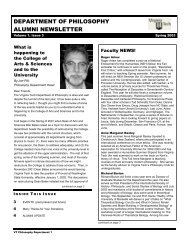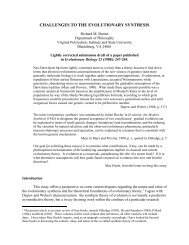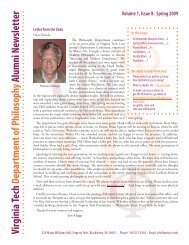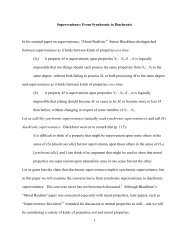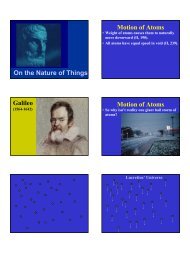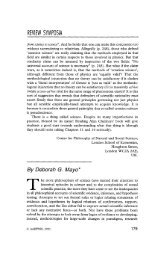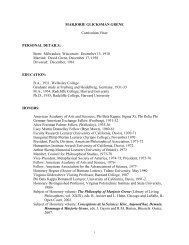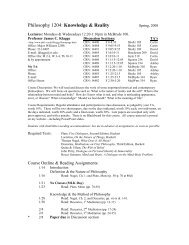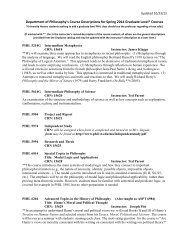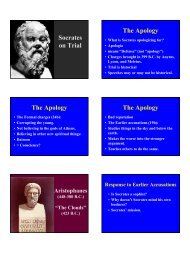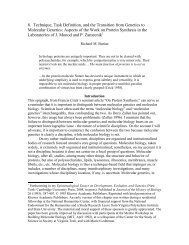Wittgenstein in Exile
Wittgenstein in Exile
Wittgenstein in Exile
You also want an ePaper? Increase the reach of your titles
YUMPU automatically turns print PDFs into web optimized ePapers that Google loves.
It is not, it is true, as though he accepted what nowadays passes for architecture as architecture or<br />
did not approach what is called modern music with the greatest suspicion (though without<br />
understand<strong>in</strong>g its language), but still, the disappearance of the arts does not justify judg<strong>in</strong>g<br />
disparag<strong>in</strong>gly the human be<strong>in</strong>gs who make up this civilization….<br />
I realize then that the disappearance of a culture does not signify the disappearance of<br />
human value, but simply of certa<strong>in</strong> means of express<strong>in</strong>g this value, yet the fact rema<strong>in</strong>s that I have<br />
no sympathy for the current of European civilization and do not understand its goals, if it has any. 6<br />
Clearly <strong>Wittgenste<strong>in</strong></strong> saw the era up through Schumann as the flower<strong>in</strong>g of Western culture, and<br />
the time s<strong>in</strong>ce, his and our own time, as deteriorat<strong>in</strong>g Western civilization. This accounts for the<br />
numerous disparag<strong>in</strong>g remarks <strong>Wittgenste<strong>in</strong></strong> made about modern arts. 7<br />
Indeed, the orig<strong>in</strong>al title<br />
of this symposium, “<strong>Wittgenste<strong>in</strong></strong> and Culture,” is mislead<strong>in</strong>g, s<strong>in</strong>ce <strong>Wittgenste<strong>in</strong></strong> did not believe<br />
that we or he had a culture. Spengler writes:<br />
The present is a civilized, emphatically not a cultured time, and ipso facto a great number of lifecapacities<br />
fall out as impossible….We are a civilized, not Gothic or Rococo, people; we have to<br />
reckon with the hard cold facts of a late life, to which the parallel is to be found not <strong>in</strong> Pericles’<br />
Athens but <strong>in</strong> Caesar’s Rome. Of great pa<strong>in</strong>t<strong>in</strong>g or great music there can no longer be, for<br />
Western people, any question. Their architectural possibilities have been exhausted these hundred<br />
years. Only extensive possibilities are left to them. 8<br />
S<strong>in</strong>ce <strong>Wittgenste<strong>in</strong></strong> identified with and felt grounded <strong>in</strong> this lost culture, he commonly<br />
expressed the feel<strong>in</strong>g that few—the remnant—would understand him. He concluded the early<br />
draft of his foreword (1930) with:<br />
So I am really writ<strong>in</strong>g for friends who are scattered throughout the corners of the globe.<br />
Reflect<strong>in</strong>g on this statement <strong>in</strong> 1931, <strong>Wittgenste<strong>in</strong></strong> writes:<br />
If I say that my book is meant for only a small circle of people (if it can be called a circle), I do not<br />
mean that I believe this circle to be the elite of mank<strong>in</strong>d; but it does comprise those to whom I turn<br />
(not because they are better or worse than others but) because they form my cultural milieu, my<br />
fellow citizens as it were, <strong>in</strong> contrast to the rest who are foreign to me. 9<br />
3



